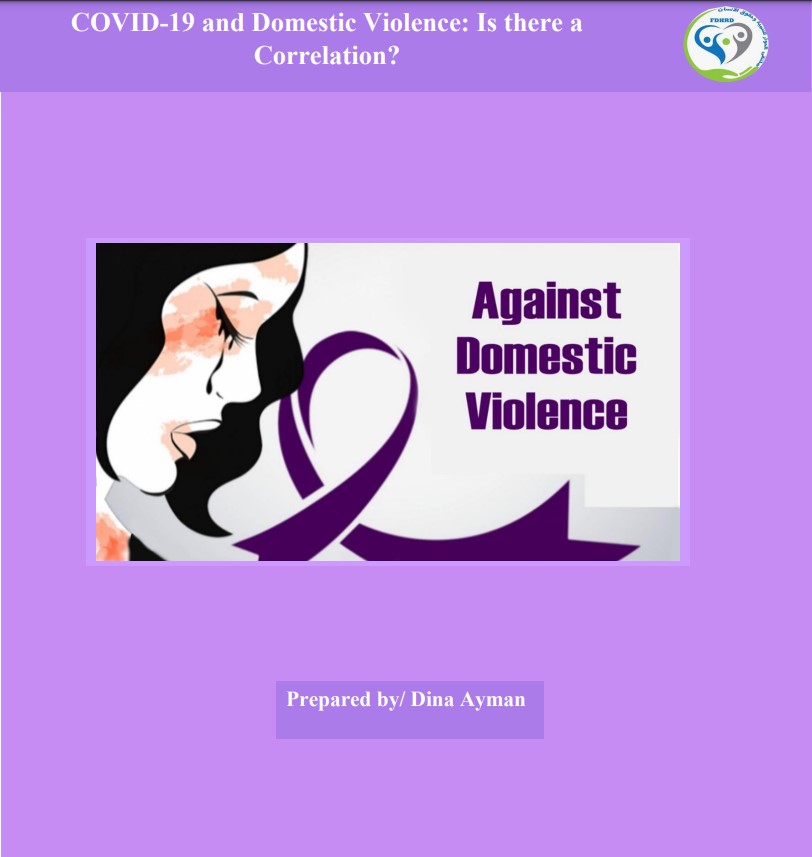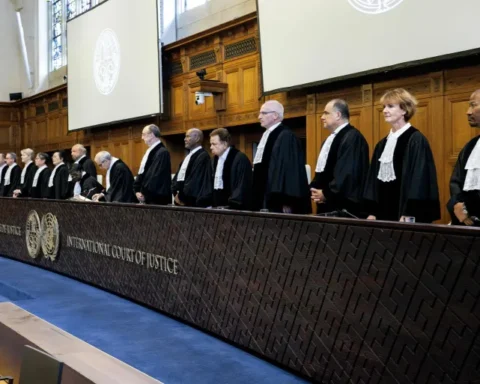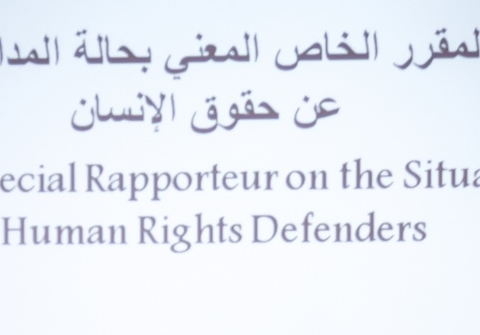Press Release
…………………………………………………………………………………….
This morning, Thursday, November 25, 2021, the Unit of Researches Studies at the Forum for Development and Human Rights Dialogue issued a report entitled: (COVID-19 and Domestic Violence: Is there a Correlation?) on the occasion of the International Day for the Elimination of Violence against Women.
The report comes to emphasize global efforts to raise awareness of violence against women or gender-based violence that is deeply rooted in gender inequality, which is one of the most prominent human rights violations in all societies. The report indicated that one out of every three women experiences sexual or physical violence in her lifetime. Also, during displacement and times of crisis, the risk of gender-based violence increases dramatically for women and girls.
The report had some topics, most of them are:
First: Types of Gender-Based Violence
The report indicated that although women and girls are the main victims of gender-based violence, it also causes significant harm to families and communities. There are various forms of gender-based violence and the most well-known are domestic violence and physical violence, while we can find that people may or may not be able to realize that psychological violence can be a form of gender-based violence as well. The report mentioned the different definitions adopted for the types of gender-based violence: (physical violence, and domestic violence).
Second: International Conventions on Violence against Women
The last two decades have seen several United Nations General Assembly resolutions on violence against women, including a resolution specifically addressing domestic violence, in accordance with the various United Nations treaties on domestic violence, as a violation of human rights, as a violation of fundamental freedoms such as the right to life and personal security, as a violation of the right to equality.
The report addressed that there are some international and regional conventions that condemn violence against women, where domestic violence is recognized in international law as a violation of human rights, and the most important of these conventions are:
1- UN Convention on the Elimination of All Forms of Discrimination against Women (CEDAW)
This convention requires states to eliminate discrimination against women in all fields and to promote women’s rights on an equal footing, and is often described as the international convention on women’s rights. This convention defines discrimination against women and girls as any distinction, exclusion or restriction by men against women with the aim of affecting and impairing women’s enjoyment of their political, economic, cultural or civil human rights. All countries that have ratified this Convention are obligated to follow a national policy that eliminates discrimination against women in all its forms.
2- Council of Europe Convention on Preventing and Combating Violence against women & Domestic Violence (Istanbul Convention)
The Istanbul Convention defines violence against women as a violation of human rights, condemns all forms of violence against women and describes this violence as an expression of a historical power imbalance between women and men. It is the most comprehensive convention on human rights in its field and the first legally binding regional instrument on violence against women in Europe.
3- PROTOCOL TO THE AFRICAN CHARTER ON HUMAN AND PEOPLES’ RIGHTS ON THE RIGHTS OF WOMEN IN AFRICA (Maputo Protocol).
The protocol is called (the Maputo Protocol) after the city of Maputo in Mozambique, and the it guarantees comprehensive rights for women including the right to participate in the political process, social and political equality with men, improved independence in reproductive health decisions, and an end to female genital mutilation.
4- Agreement on the Establishment of the Arab Women’s Organization
Where the Arab Women’s Organization was established to believe that the concept of violence is not limited to physical or physical abuse, but its concept expands to include all other manifestations of discrimination against women and depriving them of any of their human rights.
Third: The Correlation Between COVID-19 and High Rates of Domestic Violence
The report emphasized that working from home during the outbreak of the Corona epidemic led to increased levels of tension and anxiety among many family members, as isolation during the epidemic raised tensions that led to domestic violence, and as a result, perpetrators of abuses expanded their power. Calls to helplines from victims of domestic violence have also increased five times the usual rate in some countries. Many have called domestic violence a “shadow pandemic” for this reason along with the epidemic.
1- Domestic Violence amid COVID-19
The report showed some statistics on domestic violence globally. According to the World Health Organization, the Eastern Mediterranean region ranks second in the world in cases of domestic violence against women, reaching 37% of the total global cases, and statistics show an increase in violence against women in America Latin and other countries, particularly in the Caribbean, calls to helplines increased by 53 percent in Mexico during the first quarter of 2020.
When the epidemic began, domestic violence in Hubei, China increased by 300%; 25% in Argentina, 30% in Cyprus, 33% in Singapore, and 50% in Brazil. Calls for domestic violence hotlines have also risen since the outbreak in the UK. The situation has become even more alarming in the United States, with police departments reporting increases in cities across the country, for example: 18% in San Antonio, 22% in Portland, and 10% in New York City. And in Israel, on the occasion of the International Awareness Month against Domestic Violence, the Ministry of Social Security announced that there was an increase in the number of cases last year, about 19,000 people went to help centers, and about 15,000 of the calls asked for intervention.
2- Domestic Violence amid COVID-19 in Egypt
The report stated that about eight million Egyptian women are at risk of domestic violence every year, and that up to 86% of wives may be exposed to spousal abuse. Four out of five married men have directed some form of psychological violence against their wives. In addition, nearly half of young women reported experiencing physical violence from their brothers or fathers. According to the data, there was a 13% increase in the number of patients in family violence treatment centers, 2704 women received individual care, and 9,278 family care.
Fourth: International Efforts Combating Violence against women
Within the report, worldwide efforts were made to combat violence against women, especially domestic violence, through various ratified conventions, and dealt with most countries that adhere to them to combat violence against women and set penalties and laws to help reduce and eliminate it. There are also efforts made by the international community to raise awareness about domestic violence, and this is done through international campaigns to raise awareness around the world. Among the most important of these campaigns are:
1- The 16 Days of Activism against Gender Based Violence
This year marks the 30th anniversary of the Global 16 Days of Anniversary Campaign, an annual international campaign that kicks off on 25 November (the International Day for the Elimination of Violence against Women) and runs until 10 December as International Human Rights Day. In 2020, the campaign increased its efforts to amplify the voices of women workers in the informal economy while continuing to demand ratification of ILO Convention 190 and an end to all forms of gender-based violence in private and public spaces. In this year 2021, the campaign focuses on domestic violence in the world of work, i.e., ending violence and harassment in the world of work.
2- The UNiTE Campaign
It was launched in 2008 under the United Nations Secretary-General’s “Unite 2030 to End Violence Against Women” campaign, a multi-year effort aimed at preventing and eliminating violence against women and girls worldwide. UNiTE calls on governments, civil society, women’s organizations, youth, the private sector, the media and the entire United Nations system to join forces in responding to the global epidemic of violence against women and girls.
The UNiTE campaign has declared the 25th of each month as Orange Day, a day to raise awareness and take action to end violence against women and girls. As a bright and optimistic color, orange represents a future free of violence against women and girls.
Orange Day calls on activists, governments and UN partners to mobilize people and highlight issues related to preventing and ending violence against women and girls, not just once a year, on November 25 (International Day for the Elimination of Violence against Women), but every 25th of the month.
3- The International Day for Elimination of Violence against Women
Women’s rights activists have observed November 25 as a day against gender-based violence since 1981. The date was chosen to honor the Mirabal Sisters, three political activists from the Dominican Republic who were brutally murdered in 1960 by order of the country’s ruler, Rafael Trujillo. (1930-1961). On December 20, 1993, the General Assembly adopted the Declaration on the Elimination of Violence against Women through resolution 48/104, paving the way towards eliminating violence against women and girls worldwide.
The report concluded by emphasizing that domestic violence is a serious and prevalent health problem that affects victims all over the world and is unfortunately associated with high rates of sickness and death. Most women who experience domestic violence are at high risk of physical complications such as poor pregnancy outcomes, sexually transmitted diseases and even miscarriages.








